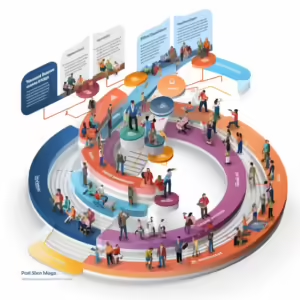Service Level Agreement: Ensuring quality and reliability in the service
A Service Level Agreement (SLA) is an essential part of the relationship between service providers and their customers. It is a contractual framework that defines specific performance standards and the quality of the services to be provided. This article presents the importance, key aspects and challenges of an SLA in the service industry.
What is a Service Level Agreement?
A service level agreement is a formal contract between a service provider and its customer that specifies in detail what services are to be provided and what level of performance is expected. SLAs are common in areas such as IT services, telecommunications and professional services.
Key aspects of a service level agreement
- Service description: Precise definition of the services to be provided.
- Performance standards: Setting metrics to assess service quality, such as response times, availability rates or processing times.
- Monitoring and Reporting Procedures: Procedures for measuring and reporting performance.
- Troubleshooting and compensation: What to do if the agreed standards are not met and possible compensation or penalties.
- Change Management: Procedures for handling changes in services or requirements.
- Duration of validity and termination provisions: Term of the SLA and conditions for termination or extension.
Importance of a Service Level Agreement
- Quality Assurance: Ensures that services meet customer expectations.
- Transparency and Clarity: Creates a clear understanding of service expectations and obligations.
- Building trust: Strengthens trust between the service provider and the customer.
- Risk management: Minimizes the risk of misunderstandings and disputes.
Challenges with service level agreements
- Complexity: SLAs can be very complex and require careful development and understanding.
- Flexibility: Adapting to changing business needs can be challenging.
- Enforcement and Compliance: Ensuring both parties adhere to agreed standards.
Conclusion
Service level agreements are an indispensable tool for ensuring the quality and reliability of services. They provide a structured basis for the expectations and commitments of both parties and are crucial to maintaining a successful, long-term business relationship. Careful design and regular review of SLAs are essential to meet the ever-changing needs of the business environment and ensure ongoing customer satisfaction.






